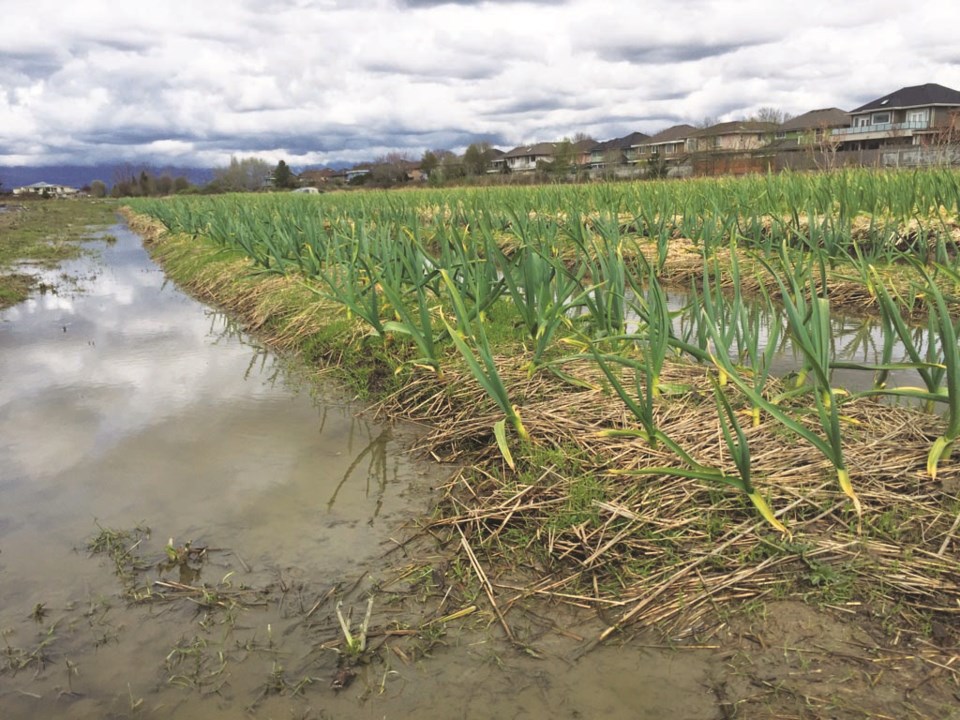The question that everyone is asking us at the moment is: “How is all this rain affecting the Sharing Farm?”
It’s a good question. There has been a lot of rainfall this winter and spring. In fact, March saw the most rainfall since 1956. That’s a large amount of water!
Our fields are certainly showing it. Rubber boots are a mandatory requirement and there are ducks swimming in between the beds. At least something is enjoying the weather!
The garlic has survived the winter, due to us piling up the earth a couple of feet to combat the inevitable saturation.
We like to refer to this area of the farm as the “Venice of Garlic” due to the deep canals between the rows.
This is not great news for the season. We will need at least a week of dry weather to be able to till our fields. If we tilled when wet, our clay soil would set into a cement-like consistency, creating a hard-pan that would only add to our flooding woes.
We also won’t have the luxury of using our flame weeder in the early season.
This clever tool provides a clean and easy way of killing weeds. We till the soil and then water the area. This encourages the weed seeds lurking in the soil to emerge. Once sprouted we pass flame over them briefly, just enough to heat the plant tissues and kill them; leaving us with a clean bed to plant vegetables in.
It’s not a perfect method, the roots still survive and the perennial weeds will keep coming back, but it does allow us to get a head start and it will eliminate most annual weeds.
Unfortunately, this method requires time to wait for the weed seeds to germinate, an indulgence that we will not have this spring. This means we will need our volunteers more than ever to help with the inevitable extra weeding.
Although it is unwelcome, the deluge will not destroy us. We might not beat our record of 20,500 lbs. of produce donated that we set in 2016, but our fields will dry eventually.
We use our 2.5 acres of cultivated land intensively and often get two to three crops out of a single strip of land in one year.
In 2017, it is more likely to be one to two crops.
At the end of the day, we live in an area of temperate rainforest at sea level. The damp is very much a part of our lives.
We will work with what mother nature gives us, as farmers have always done.
Sarah Drewery is the executive director of the Sharing Farm, a non-profit farm in Terra Nova Park, which grows food to donate to the food bank and community meal programs in Richmond



